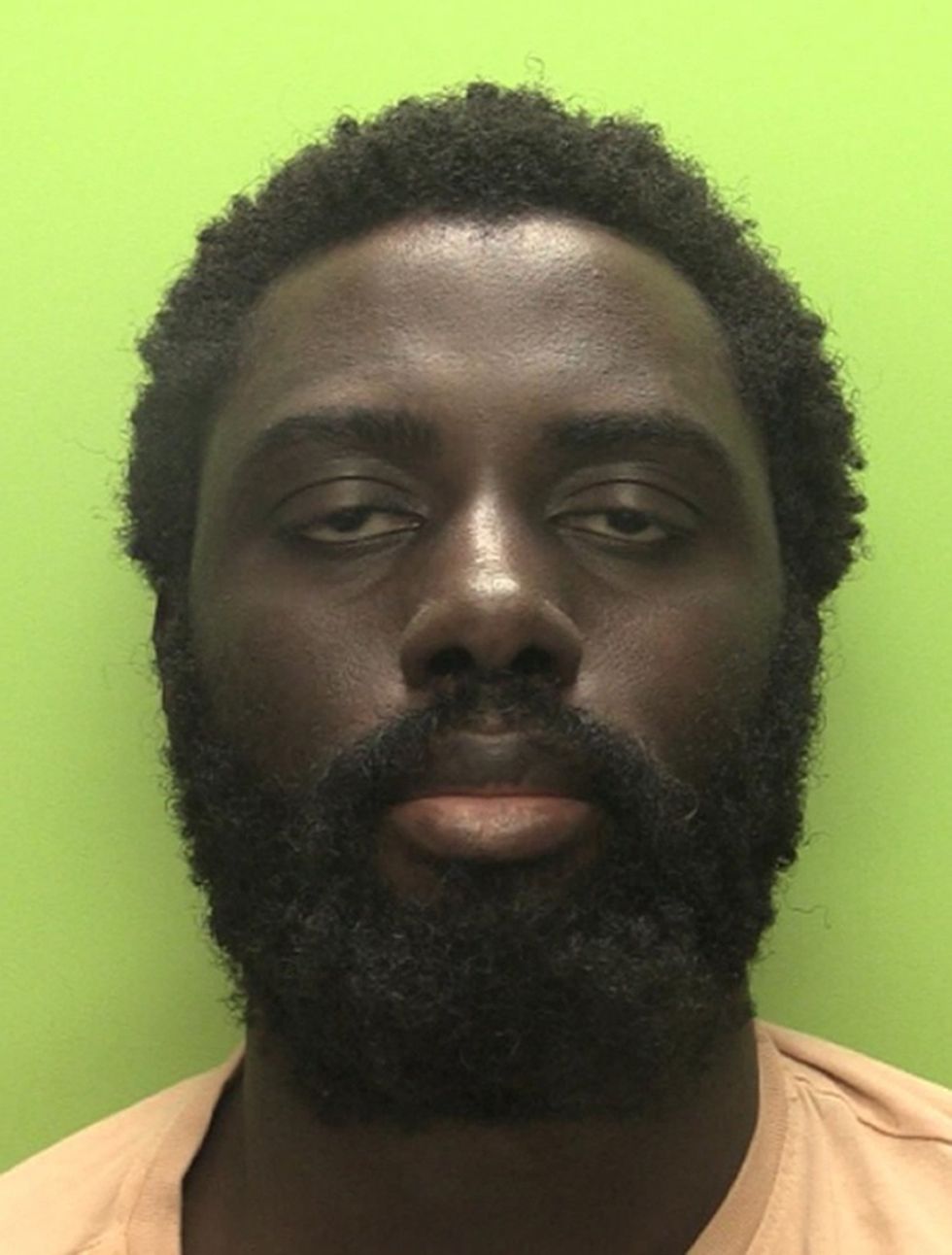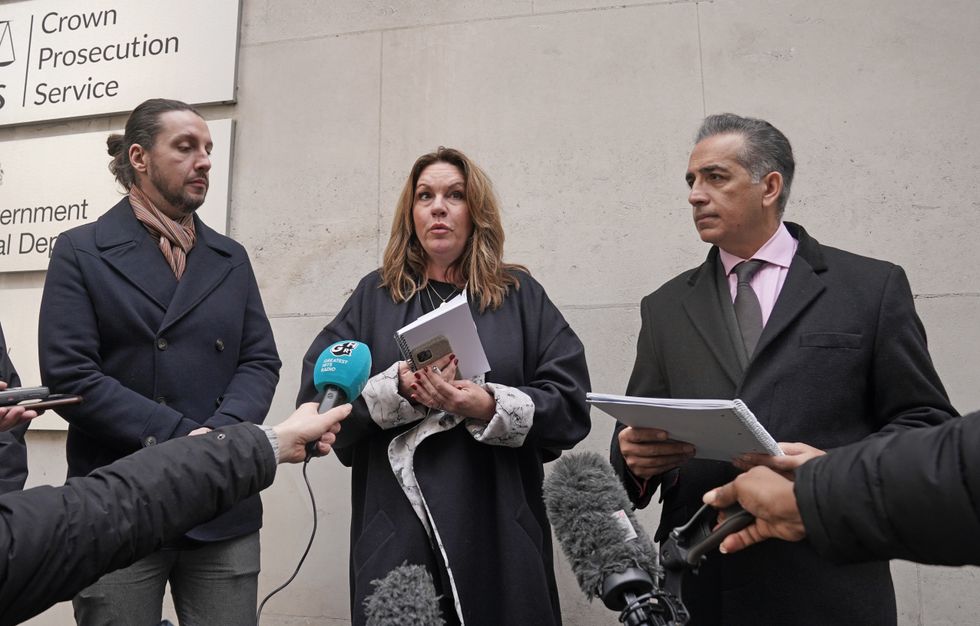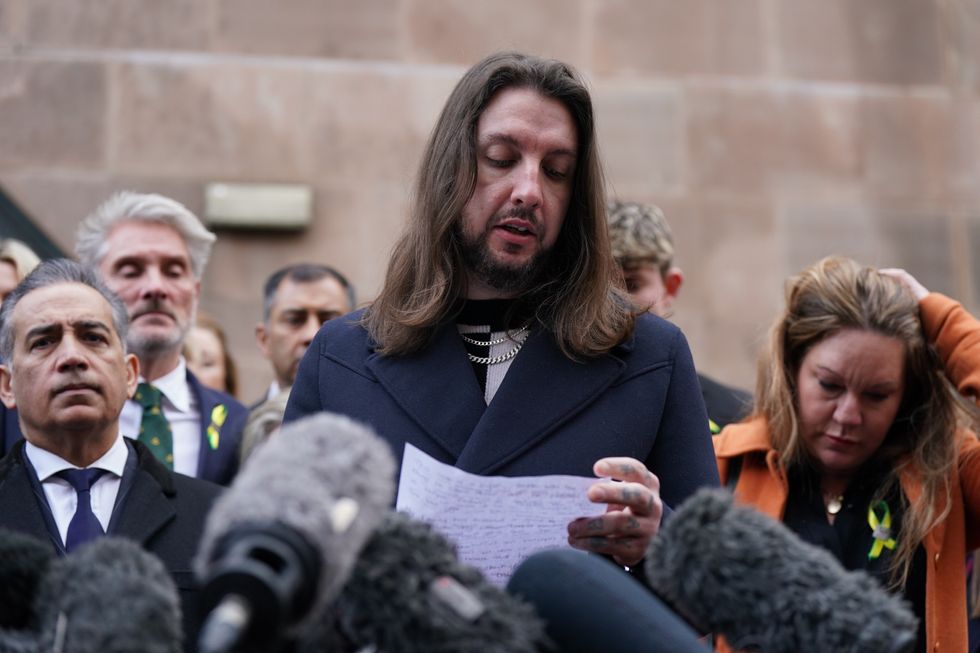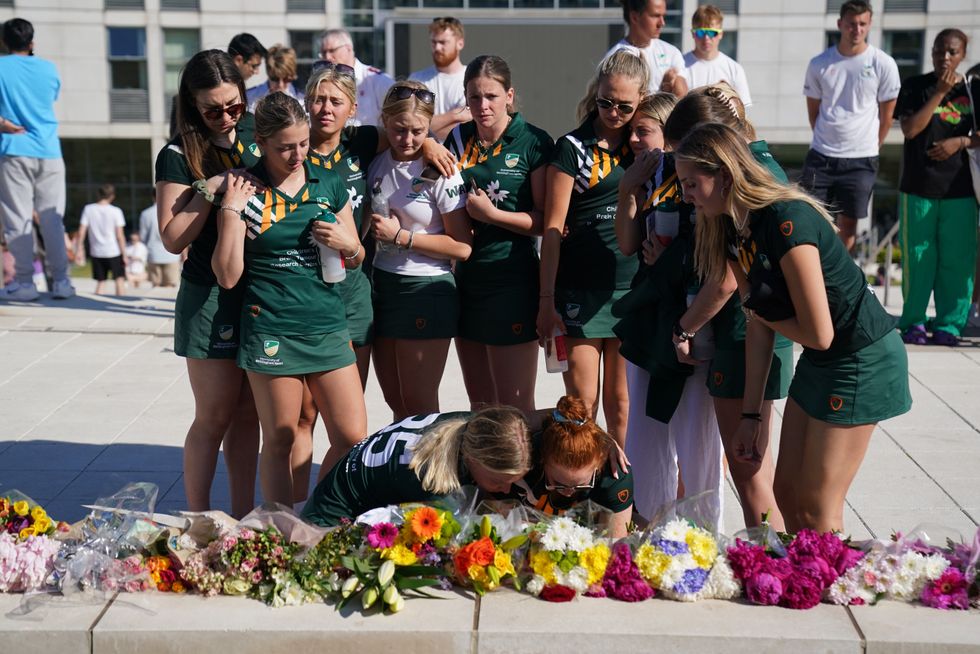George Bunn
Guest Reporter
Nottingham triple killer Valdo Calocane was not forced to take long-lasting antipsychotic medication because he "did not like needles", a damning independent report has revealed.
The investigation found that medical teams attempted to treat Calocane "in the least restrictive way" despite concerns about his compliance with medication.
Calocane killed students Barnaby Webber and Grace O'Malley-Kumar, both 19, and 65-year-old caretaker Ian Coates in June 2023, before attempting to kill three other people. He was later sentenced to an indefinite hospital order after being diagnosed with paranoid schizophrenia.
The report, commissioned by NHS England and published on Wednesday, detailed four hospital admissions between 2020 and 2022 and multiple contacts with community teams before he was discharged to his GP.



The families of the three victims said the report showed Calocane was "responsible for his actions and was allowed to make these decisions by his treating teams".
They expressed concern that "the court, the general public and us as families were all potentially misled" about his mental capacity.
"This latest report suggests the court may not have been given the full picture, potentially leading to an injustice of the highest order," the families said in a statement. They warned that without urgent action, there was a risk of "seeing him walk back into society again if he responds well to treatment in hospital".
The families called for a full statutory inquiry to examine "the wider failings in the care, treatment and sectioning of those with mental illnesses".
LATEST ON VALDO CALOCANE:


The report highlighted multiple failures in Calocane's care, including how his risk "was not fully understood, managed, documented or communicated".
Each hospital admission was viewed in isolation, with investigators noting a "lack of cumulative perspective" over his pattern of engagement. The review revealed disturbing behaviour by Calocane, including frightening a neighbour so severely she jumped from a first-floor window and holding his flatmates "hostage".
"Alarmingly, the report disclosed that between 2019 and 2023, 15 other patients under the trust's care committed "extremely serious" acts of violence, including stabbings.
Three of these incidents resulted in fatalities, with one patient arrested for stabbing five people over a single weekend in February 2023. The trust board showed "limited evidence" of discussing these serious incidents or subsequent investigations, according to the report.



Dr Jessica Sokolov, regional medical director at NHS England (Midlands), said: "It's clear the system got it wrong, including the NHS, and the consequences of when this happens can be devastating."
NHS England has ordered all mental health trusts to review the findings and develop action plans for treating people with serious mental illness. Trusts have been instructed not to discharge patients who fail to attend appointments.
Ifti Majid, chief executive of Nottinghamshire Healthcare NHS Foundation Trust, apologised "unreservedly" for missed opportunities in Calocane's care.
"We are making clear progress with a Trust-wide plan, which is already delivering key improvements in areas such as risk assessment and discharge processes," he said.
The trust is also improving how it listens to patients, families and colleagues to ensure concerns are acted upon quickly.
Find Out More...
The investigation found that medical teams attempted to treat Calocane "in the least restrictive way" despite concerns about his compliance with medication.
Calocane killed students Barnaby Webber and Grace O'Malley-Kumar, both 19, and 65-year-old caretaker Ian Coates in June 2023, before attempting to kill three other people. He was later sentenced to an indefinite hospital order after being diagnosed with paranoid schizophrenia.
The report, commissioned by NHS England and published on Wednesday, detailed four hospital admissions between 2020 and 2022 and multiple contacts with community teams before he was discharged to his GP.



The families of the three victims said the report showed Calocane was "responsible for his actions and was allowed to make these decisions by his treating teams".
They expressed concern that "the court, the general public and us as families were all potentially misled" about his mental capacity.
"This latest report suggests the court may not have been given the full picture, potentially leading to an injustice of the highest order," the families said in a statement. They warned that without urgent action, there was a risk of "seeing him walk back into society again if he responds well to treatment in hospital".
The families called for a full statutory inquiry to examine "the wider failings in the care, treatment and sectioning of those with mental illnesses".
LATEST ON VALDO CALOCANE:
- Nottingham triple killer Valdo Calocane WON'T face tougher sentence as judges throw out appeal for 'unduly lenient' ruling
- BBC sparks fury from Nottingham knife attack victim's mum after interviewing attacker's family for TV
- Deep deep shame on BBC for disgraceful Valdo Calocane Panorama says Peter Bleksley


The report highlighted multiple failures in Calocane's care, including how his risk "was not fully understood, managed, documented or communicated".
Each hospital admission was viewed in isolation, with investigators noting a "lack of cumulative perspective" over his pattern of engagement. The review revealed disturbing behaviour by Calocane, including frightening a neighbour so severely she jumped from a first-floor window and holding his flatmates "hostage".
"Alarmingly, the report disclosed that between 2019 and 2023, 15 other patients under the trust's care committed "extremely serious" acts of violence, including stabbings.
Three of these incidents resulted in fatalities, with one patient arrested for stabbing five people over a single weekend in February 2023. The trust board showed "limited evidence" of discussing these serious incidents or subsequent investigations, according to the report.



Dr Jessica Sokolov, regional medical director at NHS England (Midlands), said: "It's clear the system got it wrong, including the NHS, and the consequences of when this happens can be devastating."
NHS England has ordered all mental health trusts to review the findings and develop action plans for treating people with serious mental illness. Trusts have been instructed not to discharge patients who fail to attend appointments.
Ifti Majid, chief executive of Nottinghamshire Healthcare NHS Foundation Trust, apologised "unreservedly" for missed opportunities in Calocane's care.
"We are making clear progress with a Trust-wide plan, which is already delivering key improvements in areas such as risk assessment and discharge processes," he said.
The trust is also improving how it listens to patients, families and colleagues to ensure concerns are acted upon quickly.
Find Out More...
